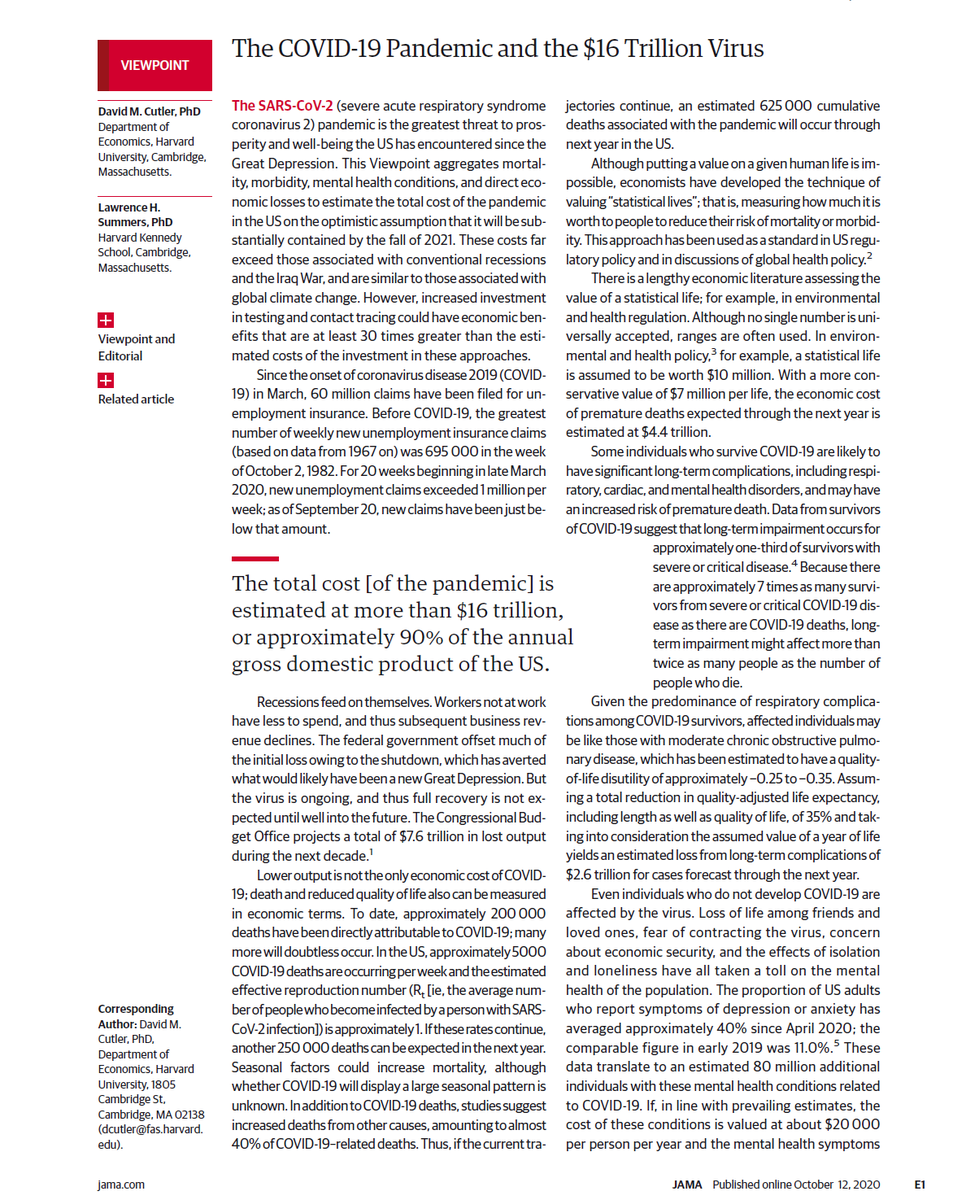
Watch here my debate @fordschool with @MayaMacGuineas on whether the federal deficit is unsustainable. fordschool.umich.edu/events/2020/fe…
We need a different paradigm while thinking about the deficit. Of course we need more stimulus. The difficult question is: What do we need in the future?
A move to austerity as soon as possible is dangerous & misguided. Fails to appreciate the big structural changes in our economy, which is the emergence of a massive excess of private savings over private investments at a reasonable interest rate. What I call secular stagnation.
We need to absorb private savings and the best way is expansionary fiscal policy.
Need to think about debt burdens in a reasonable way. We need to decide what are the important deficits.
If we make necessary investments, and do it sensibly, they will grow the GDP enough to generate enough tax collection that we won't have a rising debt to GDP ratio.
• • •
Missing some Tweet in this thread? You can try to
force a refresh



